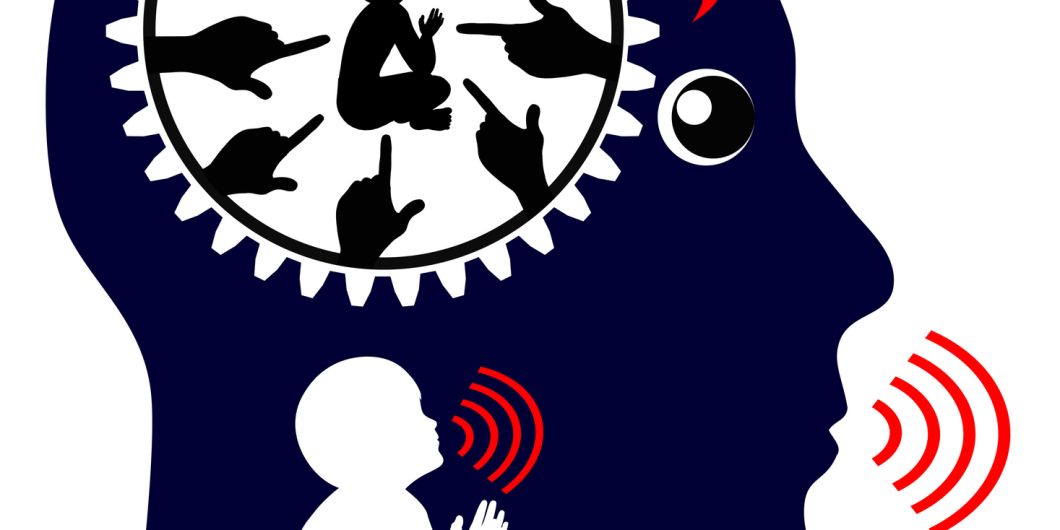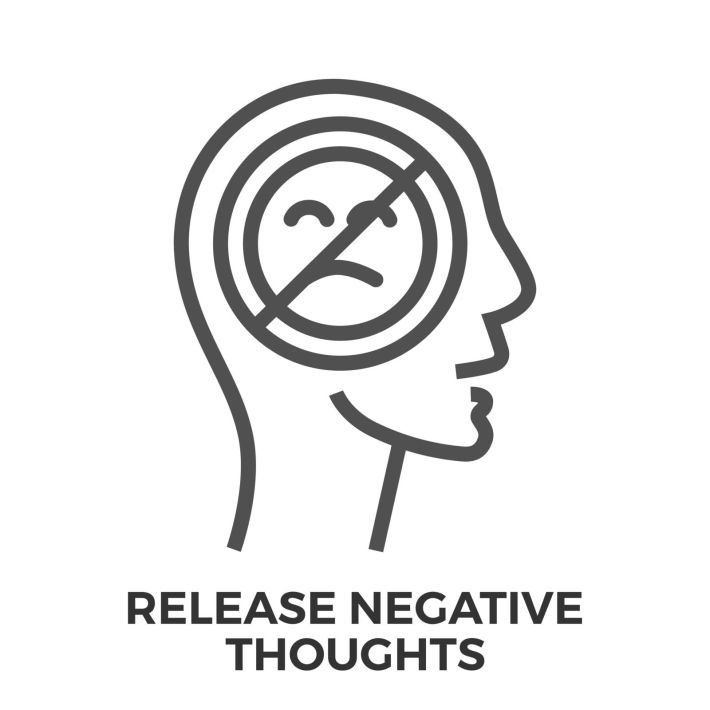- in Personality by Tony
- |
- 1 comments
Is my inner voice driving me mad?

So many terms have been used to indicate the inner voice, also known as inner monologue, internal dialogue, inner speech, verbal thoughts and the voice or chatter inside your head.
Does Everyone Have an Inner Voice?
More...
In most cases, the term “inner voice” refers to the constant stream of thoughts that run through our head. Such thoughts are a sort of conversation with themselves in their mind.
For those individuals who talk to themselves, the phenomenon is called Inner speech having most of the same characteristics as external speech except that no external sounds are produced: it can proceed at the same rate of speed and pitch, with the same emotion as external speech.
Inner speech is frequent but not for everyone, and those thoughts can be positive or negative, depending on whether they serve us or harm you. For example, if you are anxious about a test, your inner voice will tell you that you will fail.
Such thoughts will cause stress and anxiety, negatively affecting your performance and ultimately becoming a self-fulfilling prophecy.

You will find some individual differences in frequency—some people talk to themselves a lot, some never, and others only occasionally. We all have a voice in our head in some shape or form, and most people are conscious of an inner voice that provides a running monologue throughout their lives.
This inner voice, or self-talk, combines conscious thoughts with unconscious beliefs and could be somewhat prejudice, providing a way for the brain to interpret and process those experiences you encounter daily, it is considered to be a hypothetical doorway between the self and the physical world.
Another skill that appears linked to inner speech is silent reading. While children learning to read often need to read aloud. The brain’s two hemispheres are not identical twins, with the dominant left supervising inner speech and the right hemisphere observing social speech as an articulatory rehearsal.
It shouldn’t be surprising to learn that articulatory rehearsal in dementia is disrupted, along with inner speech. A case study was taken over two decades ago on a 69-year-old man with dementia.
During this period, the patient started reading aloud at bedtime, annoying his wife. His voice was thunderous, and it was difficult for him to stop. Moreover, he often spoke aloud to himself during the day or suddenly began singing, all those features were unusual for him.
Suggesting a prefrontal inhibitory role in the control of inner speech via an early loss of speechless reading was an initial indication of an early onset frontotemporal dementia due to executive dysfunction caused by frontal lobe damage.
Through an early loss of silent reading, inner speech is an inaugural sign of frontotemporal dementia. Another example is from a prominent neuroscientist, Jill Bolte Taylor, who experienced a massive stroke in 1996 that resulted in a complete loss of inner speech.
As she later described in her book, My Stroke of Insight, losing inner speech also led to problems with self-awareness, loss of biographical memories, and even losing those emotions related to self-consciousness.
Let Your inner voice become your cheerleader

We, unknowingly, carry an inner dialogue with us, for most of the time. Whether you call it inner speech, self-talk, or something else, it appears to be an essential part of our daily life.
Not only does it allow us to “rehearse” different scenarios, it enables us to avoid impulsive actions.
According to the Soviet psychologist Lev Vygotsky, our inner-speech capacity begins as a toddler; we learn to integrate the separate systems from thought and language. As an example, Vygotsky described what he referred to as private speech, in which children talk to themselves while carrying out a challenging cognitive task.
Many athletes talk to themselves to enhance performance; Andy Murray yells at himself during his tennis matches.
You may be familiar with the term, Internal narration. Saying things such as, “I’d better get on with this work now” or, “I’m running late” are common examples. Maybe, you could add more to this list within the comments box below.
What causes an inner monologue?
Some research shows that people often use more inner verbalisation when under pressure. Perhaps they’re rehearsing answers to a likely job interview question. Or maybe they’re athletes trying to focus or reflect on their game.
Don’t let the noise of other’s opinions drown out your own inner voice
- Steve Jobs -
Media coverage
Not to be confused with Stranger than fiction, being a psychodrama comedy about a tax inspector who hears voices in his head that starts to narrate his life. However, in this case, it is vital to recognise the difference between your inner voice and your conscious self.
Your inner voice is the part of your brain that controls your emotions, whereas your conscious self is the rational part of your brain that makes decisions.
By controlling your inner voice, you can stop worrying about things that don’t matter and focus on the things that do. Individuals who tell us they don’t experience inner speech assume that others don’t either.
In comparison, someone who encounters a lot of self-talk only thinks that others will do so too.
Self-talk helps us cope with disturbing emotional states, such as fears, anxiety, guilt, anger, and depression. Somebody suffering from depression or anxiety often finds themselves using inner speech to ruminate on how bad life is and the likelihood of failure.
For this reason, many different kinds of psychotherapy often teach people how to use inner speech to overcome self-doubt and fear of failure by replacing negative self-talk with more positive inner speech.
When we talk to ourselves, we also listen to what we say, but not all voices are necessarily benign. Some psychiatric patients struggle to come to terms with the ones that are abusive, derogatory or destructive.

Cultural differences
Studies suggest that culture might play a significant role in shaping our inner voices. In 2014, Stanford anthropologist Tanya Luhrmann discovered that the experience of voice-hearing amongst patients who have schizophrenia was dramatically altered by the cultural context in which they were situated.
Whilst all patients interviewed in the study from:
- San Mateo (United States),
- Chennai (India)
- Accra (Ghana)
- Reported both good and bad voices, the reception and character of the voices appeared to vary.
Just imagine, if culture can influence our inner voice, how might we learn to access this through meditation or any other therapeutic self-help initiative?
Religion

Sometimes the voices people hear are not their own and are attributed to a divine source. God’s voice figures prominently early in the Hebrew Bible and speaks individually to Adam, Eve, Cain, Noah, and Abraham.
At Mt. Sinai, God’s voice, in midrash, was heard communally, but was so overwhelming that only the first letter, aleph, was sounded.
But in later prophetic literature, the divine voice grows quieter.
Elijah, on Mt. Horeb, is addressed by God (after a whirlwind, a fire, and an earthquake) in what the King James Bible called a “still small voice.”
And which, in the original Hebrew (Kol demamah dakah), is even more suggestive
—literally, “the sound of a slender silence.” By the time we reach the Book of Esther, God’s voice is absent.
In Christianity, however, divine speech continues through the Gospels—the apostle Paul converts after hearing Jesus admonish him. Especially in evangelical traditions, it has persisted.
Martin Luther King, Jr.
Recounted by a celestial being, in the early days of the bus boycott in Montgomery in 1956. After receiving a threatening anonymous phone call, he went in despair into his kitchen and prayed.
He became aware of “the quiet assurance of an inner voice” and “heard the voice of Jesus” saying to fight on.
In fifteenth-century France, Joan of Arc testified to hearing angels and saints tell her to lead the French Army in rescuing her country from English domination.
Negative Self-Talk

It’s important to recognise these negative thoughts because they can be harmful to our mental health. Our self-talk patterns often have negative condemnations, and our inner critic can be a brutal and profoundly damaging force.
The problem with negative self-talk is its ability to convince individuals they are not good enough or will never get better, paralysing them into self-absorption and inaction.
Negative self-talk has been widely linked with disorders such as depression, anxiety, low self-esteem, aggression, and post-traumatic stress disorder (PTSD).
People with depression and anxiety frequently experience destructive and dysfunctional self-talk; the internal chatter they hear may be constant and overly critical. Overwhelmed by the negativity, they can wallow in painful rumination, attacking themselves ceaselessly.
In the most severe cases, this critical inner voice can drive an individual to commit violent behaviour or suicide. At this time, one of the prevalent approaches to battle inner-voice rumination is a distraction.
Several studies have shown that individuals find themselves pulled into negative verbal thinking, while diverting their attention away from the problem improves their emotions. The downside to this approach, however, is that this technique is only a short-term fix. Simply a plaster that obscures the wound without remedying it.
In Cognitive-Behavioural Therapy (CBT), the inner critic is not given a particular gestalt or name but is reduced to its output: being automatic negative thoughts.
A cognitive behaviour therapist may also help you better understand your own thought triggers and how to rethink them.
You can learn to let worrisome thoughts go on their way or give them a gentle nudge out the door. Or substitute them with sensible alternatives.
The theory is to oppose what it tells you rationally and engage it with objective facts.
They are, therefore, attempting to convince you logically that it is wrong. This method resembles a journalistic fact-checking exercise designed to dispute and discredit fake news.
Whereas, Acceptance and Commitment Therapy offers a very different approach. It focuses not so much on changing our negative awareness and beliefs, but on guiding and accepting them before attempting to dismiss them.
Once we start to pay attention to our self-talk and the critical voice in our heads, we may be surprised by their negativity and even cruelty.
Positive Self-Talk

Positive self-talk, as you may have guessed, is the flip of negative self-talk. It’s not about narcissism or deceiving ourselves into thinking the wrong things, and it’s more about showing yourself some self-compassion and understanding for who you are and what you’ve been through (Jantz, 2019).
Let us consider for a minute a positive, idiosyncratic habit Steve Jobs had for 30 years. He would look at himself in the mirror each morning and ask himself if that day was the last day of his life and whether he’d be happy with what he would do.
In linguistics, shifters refer to words like personal pronouns. The idea is to create a shift in your perspective, requiring minimal effort. For example, within our internal narrative switching to concepts like I can do better next time, or I choose to learn from my mistakes, not be held back by them.
As the research suggests, positive self-talk is essential for many reasons. From helping to overcome body dysmorphia to sports performance, intervening in appropriate therapeutic strategies for anxiety and depression, to enable more effective learning, positive self-talk can make a world of difference, when correctly applied.
Positive Affirmations
Positive affirmations are a fabulous way to switch up our self-talk chatter. Before a situation ever arises, that might incite negative self-talk, practice saying positive affirmations in the mirror to encourage this positive method for yourself.
Cognitive behavioural therapy also harnesses the effectiveness of verbalising positive thoughts. In contrast, positive self-talk has been linked to greater self-esteem, confidence, and overall resilience.
Verbal rehearsal
Inner speech may play an important role in working memory as well. Just consider the shopping list you recite as you walk down the aisles of a supermarket—it is part of our working memory system.
But for some of us, talking to ourselves goes much further: it’s an essential part of our thinking. The idea of internal dialogue – rather than a monologue – will be familiar to anyone who’s ever rehearsed for an important speech or recapped or played over, in their mind, an argument they had that morning.
Working memory is often confused with short-term memory, which refers to the temporary storage of information such as a telephone number or the items on your shopping list you are busily reciting.
Since we can only hold five to nine items in our working memory at any given time, we need to rely on various memory strategies to keep that information from decaying too rapidly.
One approach that works quite well with verbal material involves mentally rehearsing the information, including repeating it using either inner speech or saying it out loud.
This also means that anything interrupts this repetition process causes the memory to fade quickly. Researchers suggest that children rely on repetition to boost memory as early as seven years of age or younger as their language skills develop.
Mind-Wandering

There may also be a link between inner speech and mind-wandering, or the tendency of our minds to “drift” whenever we do something monotonous. The key to pacifying the voice is to be in the moment more; you attain this through mindfulness. One context in which mind-wandering often occurs to most people who drive.
Highway hypnosis, also known as white line fever, is an altered mental state in which a person can drive a car, truck, or other automobiles at great distances, responding to external events in the expected, safe, and correct manner with no recollection of having consciously done so.
Mind-wandering causes us to pay less attention to the world and focus more on our internal thoughts. Inner speech can be an essential part of this kind of mind-wandering, though actual research looking at this is still limited. Mental disorders such as Attention deficit hyperactivity disorder (ADHD) have also been linked to mind-wandering.
Distraction
Researchers from the Virginia Tech Transportation Institute found that two-thirds of drivers are distracted in the seconds before a driving accident occurs.
Cellphones were the most common cause, but drivers were also distracted by reading or writing, reaching for something or using a touchscreen on their dashboard.
Distraction when driving can be a dangerous activity. According to a survey of 16,307 AA members, 15 percent of men and 9 percent of women admitted to thinking about home improvements while driving. What’s more worrying is the fact that just 11 percent of men were concerned about breaking down.
Worrying about arriving on time is the biggest distraction for men (45 percent) and women (57 percent).
Charles Fernyhough, a British professor of psychology at Durham University in England, is the Author of many studies such as “The Voices Within”. He also identifies himself as a garrulous speaker and then relates to an embarrassing incident in a crowded train on the London Underground; he suddenly became self-conscious at having just laughed out loud at a nonsensical sentence playing in his mind.
How to tame your wandering mind
Amishi Jha studies how we pay attention: the process by which our brain decides what's important out of the constant stream of information it receives.
Both external distractions (like stress) and internal ones (like mind-wandering) diminish our attention's power
Auditory hallucinations

As previously mentioned, Professor Charles Fernyhough’s theory is that the auditory hallucinations experienced by many individuals with schizophrenia and people living with other mental health conditions may result from an inability to recognise distorted fragments within one’s inner dialogue.
This would seem to correspond to other findings in the field of neuroscience, which demonstrate a breakdown of the so-called “predictive processing” capacity in schizophrenic sufferers.
The process of judging and repeating your thoughts in your mind is called internal dialogue.
Associate Professor Thomas Whitford (University of New South Wales) says it has long been thought that these auditory-verbal hallucinations arise from abnormalities in inner speech – our silent internal dialogue simply becomes vocalised.
One fascinating theory about auditory hallucinations suggests that certain neurological or psychiatric conditions lead to people confusing inner speech with external voices.
Auditory hallucinations may not be part of any disorder or syndrome. Within their study, they concluded that for different diagnoses, significant clues would be the absence or presence of visual hallucinations and comorbid symptoms such as:
In layperson’s terms, if you hear voices in your head, but they don’t bother you enough to interfere with your general functioning, it’s likely not a symptom of a more significant issue.
If you can identify with any of the other listed symptoms, it may be worth visiting with a mental health care practitioner for a full assessment. Auditory hallucinations are quite common in otherwise healthy individuals and are therefore not necessarily disease-related.
What Causes The Voices?
Causes can include:
Psychiatric disorders, such as schizophrenia, dementia or bipolar disorder
Neurological disorders, such as Parkinson’s disease (this is rare, though, as patients with neurological conditions will mostly present with visual hallucinations)
Sensory deprivation such as hearing loss
Psychedelics/recreational substances such as alcohol, peyote, psilocybin, marijuana or LSD
High levels of stress, anxiety, and worry
Severe major depressive episode
Some prescription drugs, such as antihypertensives, can cause musical ear syndrome, diagnosed when a person hears music in their head. There are variations in the way people experience auditory hallucinations.
Experiencing voices in your head can be pretty alarming and scary for most people, leaving those affected wondering if something is wrong with them. Suppose the voices are cause for concern or don’t recognise them.
The best option would be to educate yourself about the auditory hallucinations or voices in your head and then decide if you need to seek treatment, especially if the voices in your head are causing you significant distress or isolate yourself from your friends and family.
The voices in my head
To all appearances, Eleanor Longden was just like every other student, heading to college full of promise and without a care in the world. That was until the voices in her head started talking. Initially innocuous, these internal narrators became increasingly antagonistic and dictatorial, turning her life into a living nightmare.
Diagnosed with schizophrenia, hospitalized, drugged, Longden was discarded by a system that didn't know how to help her. Longden tells the moving tale of her years-long journey back to mental health, and makes the case that it was through learning to listen to her voices that she was able to survive.
In Conclusion

Self-talk is a natural human process that helps us cope with difficult situations. Your inner voice is your subconscious mind talking to you, also known as your intuition or gut instinct.
You may hear this voice when trying to solve a problem or make a decision. Sometimes people call their inner voices “the devil on one shoulder” and “God on the other.”
Your mind interprets what you hear as an internal dialogue or “inner voice.” It’s not unusual for people to think they’re being told something when their thoughts are really speaking.
Your inner voice is your subconscious mind speaking through you. It is the part of yourself that knows what you want without being aware of enjoying it.
According to a 2010 study, optimistic people tend to have a higher quality of life. While breaking the negative habit of internal dialogue can be difficult, you can learn how to change it by speaking more positively to yourself.
Research has shown that having a positive inner voice can lower stress levels, enhance immune function, and even boost a person’s resiliency against setbacks.
Positive inner-talk can be improved through mindfulness meditation, self-compassion, journaling, and affirmations.
Reference List & Further Reading

My critical inner voice is driving me to distraction. Can I get it to shut up?
https://www.theguardian.com/lifeandstyle/2021/jul/30/my-critical-inner-voice-is-driving-me-to-distraction-can-i-get-it-to-shut-up
Autism, Socrates and Our Inner Self: Being loyal to ourself
https://www.psychologytoday.com/us/blog/lying-the-philosophers-couch/201608/autism-socrates-and-our-inner-self
Help! I Hear Voices In My Head!
https://www.betterhelp.com/advice/personality-disorders/help-i-hear-voices-in-my-head/?
Loss of silent reading in frontotemporal dementia: unmasking the inner speech
Author: L. VERCUEIL, H. KLINGER
Publication: Journal of Neurology, Neurosurgery & Psychiatry
Publisher: BMJ Publishing Group Ltd.
Date: May 1, 2001
Articulatory rehearsal in Alzheimer type dementia
https://www.sciencedirect.com/science/article/abs/pii/0093934X87901088
Figure-Ground Perception in Psychology
https://www.verywellmind.com/what-is-figure-ground-perception-2795195
The Voices in Our Heads: Why do people talk to themselves, and when does it become a problem?
Author: Jerome Groopman
Publication: new yorker
Date: January 9, 2017 Issue
What is Positive Self-Talk? (Incl. Examples)
https://positivepsychology.com/positive-self-talk/
Self-Talk: Inner Voice
https://www.psychologytoday.com/us/basics/self-talk
SELF TALK
https://julaaniol.com/187/self-talk/
Doom Spiral: When Negative Thoughts Get Out of Control: The roots and the risk of "chatter."
https://www.psychologytoday.com/us/blog/flipping-out/202207/doom-spiral-when-negative-thoughts-get-out-control?
Critical Inner Voice: CRITICAL INNER VOICE, DIFFERENTIATION, PARENTING, RELATIONSHIPS, SELF DEVELOPMENT, SELF-ESTEEM
Inner child
The director of Finding Neverland defends his sanitised picture of J. M. Barrie
https://www.thetimes.co.uk/article/inner-child-cmtvrfqg0mm
That Little Voice in Your Head, If You Have It, May Be Aligning Your Thoughts
https://neurosciencenews.com/internal-voice-thoughts-16802/
How the Brain Talks to Itself: A Clinical Primer of Psychotherapeutic Neuroscience.
Author: Jay E. Harris MD
Pub: Routledge
Date: 2000
Chatter: The voice in our head and how to harness it
Author: Ethan Kross
Pub: Vermiion London
Date: 2021
That Little Voice in Your Head, If You Have It, May Be Aligning Your Thoughts
https://neurosciencenews.com/internal-voice-thoughts-16802/










[…] often do you hear that little voice in your head tell you that you aren’t good enough? Negative self-talk can hinder your progress in […]